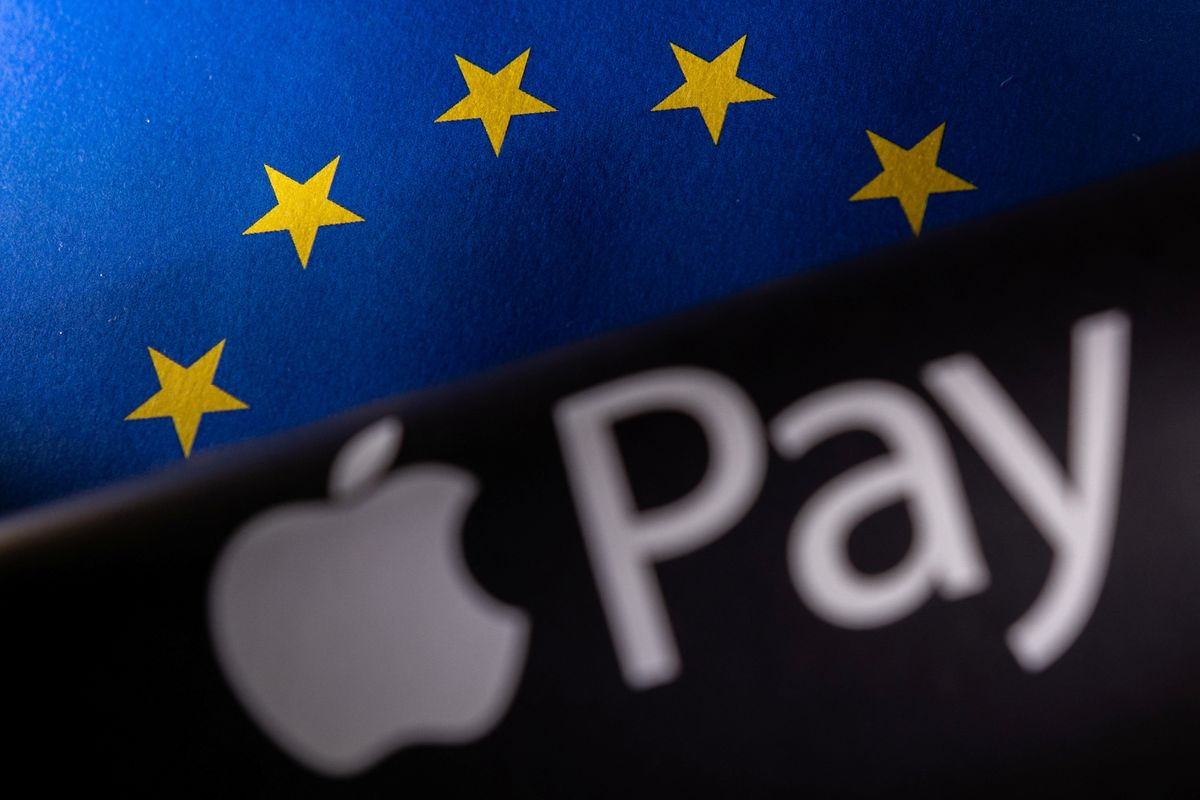The EU asks Apple for more information on Apple Pay in antitrust case
Since 2021, the EU has been accusing Apple of being anti-competitive.

A few minutes every morning is all you need.
Stay up to date on the world's Headlines and Human Stories. It's fun, it's factual, it's fluff-free.
The backstory: As you might already know, Apple Pay is a system that lets you pay at stores with just your iPhone or Apple Watch. It does this using Near-Field Communications (NFC) technology, which allows contactless payments where you just “tap and go.” When it launched in the UK back in 2015, people were super excited because it was the first country outside of the US (where it launched in 2014) to get it. Even giant British banks like HSBC were among its first launch partners. Then, about a year later, it started launching in many European countries, first in France.
More recently: But, since 2021, the EU has been accusing Apple of being anti-competitive. First, it said Apple wasn’t playing fair in the music streaming market after Spotify complained about the company’s tactics. Now, the bloc’s antitrust regulators are saying that Apple isn't letting other companies use its NFC technology, making it harder for them to create their own mobile wallet services for Apple devices.
Last year, the EU introduced the Digital Markets Act (DMA). It’s supposed to level the playing field by not letting big online platforms (with over 45 million users) throw their weight around to control data and market access. In February, Apple attended a closed hearing to defend itself, saying that it wasn’t blocking competitors’ access to its mobile payments tech.
The development: But now these antitrust regulators are looking for more info to make sure that Apple isn't breaking any antitrust laws. It’s a little weird because, usually, the commission would have issued a ruling after that hearing in February. But it looks like they’re trying to boost the case before making a decision.
Apple once argued that its payment rivals like PayPal were doing just fine on Apple's iOS system. But Vipps, a Norwegian mobile payment app (and also one of the complainants), says NFC’s alternatives are too complicated and not competitive at all. If Apple is found guilty, it could face a hefty fine of up to 10% of its global revenue. That's a big chunk based on its earnings of US$39.4 billion revenue last year.
Key comments:
"We have indications that Apple restricted third-party access to key technology necessary to develop rival mobile wallet solutions on Apple's devices," said EU antitrust chief Margrethe Vestager in a statement last year. "In our statement of objections, we preliminarily found that Apple may have restricted competition, to the benefit of its own solution Apple Pay."
"Apple Pay is only one of many options available to European consumers for making payments, and has ensured equal access to NFC while setting industry-leading standards for privacy and security," said Apple in a statement.
"Apple's App Store policies, such as imposing high fees, taking control of the entire customer relationship, and withholding important user information under the guise of privacy and security, hamper our transition to a subscription-based business model," said Petra Wikstrom, director of Public Policy at Schibsted, to Reuters in an interview.




Comments ()